
14 Local News Leaders Who Are Shining Examples to the Field
Here’s who is inspiring us with their innovation, their drive and their dedication to serving local communities
Despite the struggles of legacy media business models, 2019 was also a year that saw great progress in transforming and reframing the narrative around local news in our country. This alphabetical round-up of 14 inspirational local news leaders shows the tremendous potential we have to improve local news coverage — precisely because it is going through such a dramatic transformation.
These leaders have utilized artificial intelligence, solutions journalism techniques, public newsrooms, text-messaging news delivery and blockchain technology to puzzle through the best kinds of tools to equip both reporters and news consumers. Media organizations such as Outlier Media, City Bureau Chicago and The Tyler Loop are explicitly trying to generate journalism from the ground up and give residents the information they need most, so that communities can better hold governments and companies accountable.
Another big priority for these leaders and their organizations is to develop and reinforce trust with their audiences. That means remaining transparent about their donors and funding models — and in one case, allowing readers to have a stake in the long term strategy of the organization by allowing them to become shareholders in a co-op model. Local news will never be the same, and these leaders are paving the way for a better, stronger relationship between audiences and local journalists, creating a new era of civic engagement.
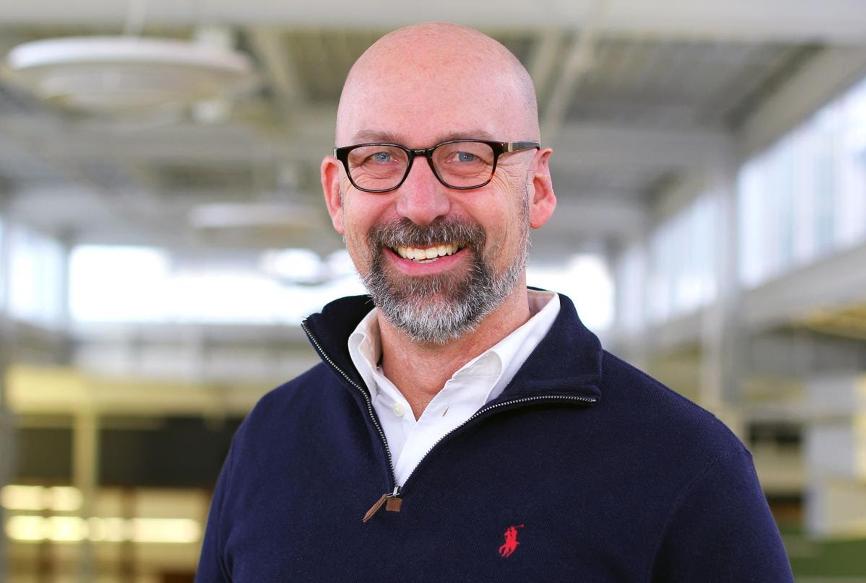
Jay Allred
President & Publisher
Richland Source & Lede Ai
As the publisher of the Ohio-based community news hub Richland Source since its start in 2013 and its president since 2017, Jay Allred has been at the forefront of creative and entrepreneurial solutions to covering local news. Richland Source uses solutions journalism to help readers become more civically engaged, and has an “open source” section where readers can suggest ideas for stories or drop tips.
And this year, Richland Source collaborated with the artificial intelligence company Abundat to create an AI software that covers local sports at scale, Lede Ai. Lede Ai partnered with ScoreStream, which tracks high school sports through its fans, to offer reports to newsrooms immediately after a game ends. The result is that smaller newsrooms can cover dozens or hundreds of games at little cost. “Our mission is to give local newsrooms superpowers,” Allred has said of Lede Ai.
“Jay Allred is doing such interesting things in Ohio — from live events in their space, to creating an AI effort around high school sports, to solutions journalism projects and more,” said Chris Krewson of LION Publishers. “His team is comprised of creative problem-solvers, and the entrepreneurialism they exhibit is inspirational. They’re motivated, they listen to their community and they care about doing solid, empathetic local journalism.”
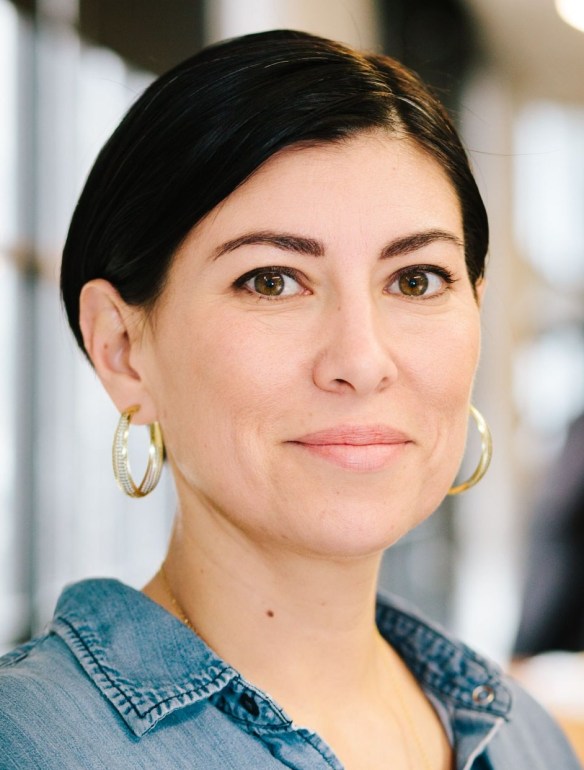
Sarah Alvarez
Founder & Executive Director
Outlier Media
After years as a civil rights lawyer and reporter at Michigan Radio, Sarah Alvarez launched Outlier Media, a fiscally sponsored project of Investigative Reporters and Editors, in 2016, with an aim to offer “Detroit-based service journalism.” The goal was to fill information gaps and be more accountable to local communities, so residents could hold their landlords, elected officials and local government accountable. Outlier chose to focus its coverage on housing and utilities after hearing feedback from the community that this was the information they needed most, and offers personalized data via an SMS text. Subscribers to the text service can engage with a chatbot, and then have a chance to talk directly with a journalist.
This year, as Outlier expands its service journalism, it hired a new CEO and has plans to hire an accountant. While its aim is to remain small and local, Alvarez also serves as an advisor to others who want to try similar watchdog accountability news in their communities. “Sarah Alvarez is using journalism in a unique way to solve problems that have a direct impact on readers,” said Anne Galloway, founder and editor of VT Digger. “I admire her vision and tenacity.”
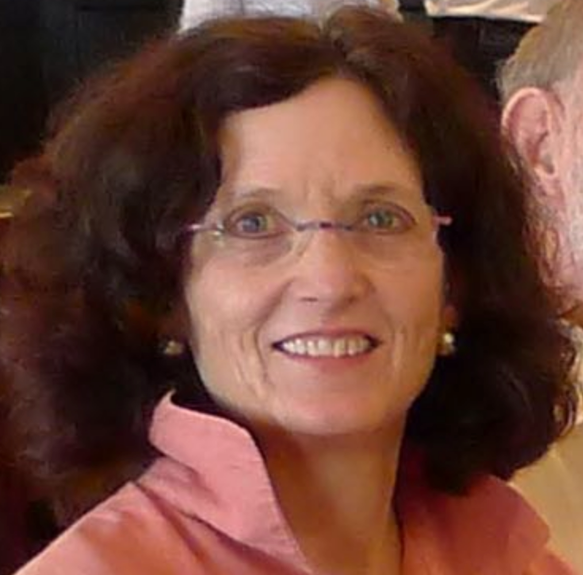
Leslie David
Executive Director
BenitoLink
Leslie David has worked as a television news reporter, camerawoman, editor, field producer, freelance newspaper, feature writer, radio reporter and rancher. The last title may seem out of place, but it was during her time as a rancher that she also learned bookkeeping and basic business skills. And all these roles helped her to become a founding board member and later executive director of BenitoLink.com, a nonprofit news site serving San Benito County in California. It relies on multiple revenue streams — business sponsorships, foundation grants and corporate donors — but chooses projects and grants carefully so as not to compromise the ethics of the organization and trust it’s built in the communities it serves. Given the county’s large Latino population, Benito Link has focused on hiring Latinos as interns, reporters, website technicians and social media experts.
“Leslie David has done remarkable things,” said Sue Cross, executive director and CEO of INN. “She shows how an entrepreneurial news leader can serve and inspire support for strong community news. BenitoLink’s coverage has earned both financial and civic support. It pulls people together across ethnic groups, the political spectrum, town life and ranch life.”
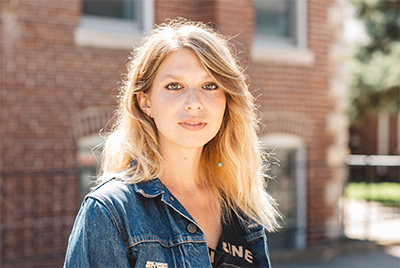
Lyndsey Gilpin
Founder and Editor-in-Chief
Southerly
Lyndsey Gilpin has reported on climate change, energy and environmental justice throughout the U.S. for national news outlets, but wanted to amplify coverage of ecology, justice and culture in the American South. So, she launched Southerly as a newsletter in 2016. Today, it’s a nonprofit media organization based in Durham, NC, that focuses on in-depth reporting on the environment, with Gilpin as editor-in-chief. Southerly hires freelancers, partners with local news outlets throughout the region to distribute their stories, and hosts events in rural communities to better develop relationships with news consumers and build trust. And Gilpin has spent this year focusing on connecting with others at universities and conferences, to discuss how to ensure people can access information that’s relevant to them and counter stereotypical narratives about the region.
“Lyndsey is creating a space for communities in the South that need thoughtful and thorough reporting on the environment that makes connections beyond the region,” said Mara Jezior, membership coordinator of INN. “It’s been exciting to watch Lyndsey’s vision for Southerly come to form and I feel like this is only the beginning.”
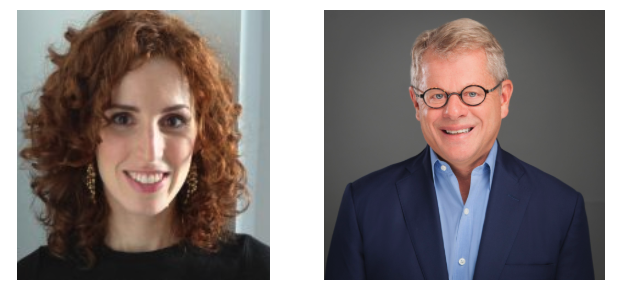
Elizabeth Green & John Thornton
Co-founders
American Journalism Project
Elizabeth Green, the founder and editor-in-chief of Chalkbeat, and John Thornton, a venture capitalist and founder of the Texas Tribune, came together this year to start the American Journalism Project. AJP is a venture philanthropy organization dedicated to supporting local news — through financial investments, mentoring and coaching, and helping local organizations catalyze financial support. AJP recently announced its first grantees, 11 local nonprofit newsrooms, including Berkeleyside, City Bureau, VT Digger and Mississippi Today.
The AJP’s model of public service journalism borrows from the one Thornton helped to pioneer with the Texas Tribune. The Tribune doesn’t depend on a single revenue source, and similarly, the AJP is focused on helping organizations develop “diverse and repeatable sources of revenue,” as Poynter’s Rick Edmonds put it, so they can remain financially sustainable.
Like Thornton, Green — who launched Chalkbeat in 2014 — has a successful track record of ambitious growth models. “Not only did she found AJP earlier this year, but at Chalkbeat, we published Chalkbeat 2025, our 5-year strategic plan that outlines one of the most aggressive growth plans in the space (from 7 local bureaus to 18 in five years; from 40 newsroom folks to close to 100),” said Allison Go, head of growth at Chalkbeat.
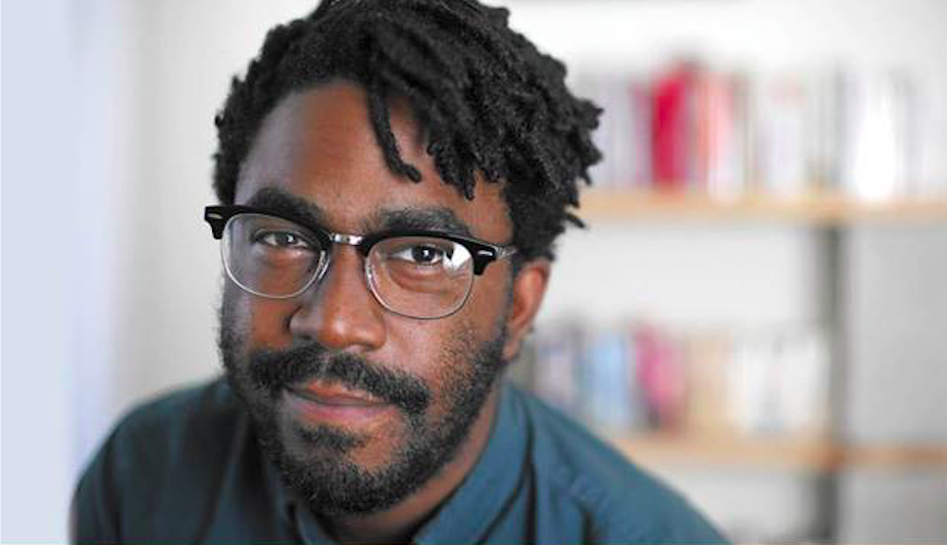
Darryl Holliday
Co-founder & News Lab Director
City Bureau
A former reporter with DNAinfo Chicago and founder of the Illustrated Press, Darryl Holliday is also a co-founder and the news lab director of City Bureau, a nonprofit civic journalism lab based in Chicago’s South Side. City Bureau runs civic journalism programs to train emerging journalists, a “public newsroom” where locals can meet and interact with journalists, and a Documenters program, which focuses on recruiting, training and paying citizen journalists to monitor local government through video and documentaries of meetings. This year, at a speech at the Collaborative Journalism Summit in Philadelphia, Holliday emphasized that journalists and media entrepreneurs shouldn’t just engage citizens, but also equip them — so that citizens can better navigate the world around them.
“I think the industry as a whole could learn a lot from [City Bureau’s] approach and I am excited for Darryl and his whole team to keep getting the shine they so richly deserve,” said Martin Reynolds, co-executive director of the Maynard Institute. “Their Documenters program, in particular, serves a vital need and helps the community become engaged and works to hold officials to account. It’s really fantastic.”

Chris Horne
Publisher
The Devil Strip
As the founder of The Devil Strip, a publication focused on the music, arts and culture out of Akron, Ohio, Chris Horne has oriented his career to focus on developing alternative business and editorial models for local news. He spent the 2018-2019 year as a John S. Knight Fellow at Stanford University to study just that, and has experimented with a beta membership drive — and utilized multiple revenue streams — to keep The Devil Strip free. This year, The Devil Strip relaunched as a community owned cooperative, allowing readers to become shareholders of the publication and have a say in The Devil Strip’s strategic future.
Debbie Blankenship of the Center for Collaborative Journalism said that Horne had exhibited true grit and tenacity. “He has worked toward his newest business model for years in the face of obstacles,” Blankenship said. “He never let anyone tell him he was dreaming too big and I admire his perseverance.”
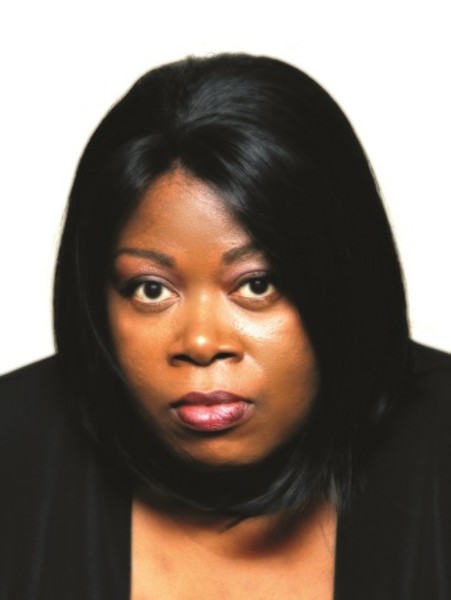
Ju-Don Marshall
Chief Content Officer
WFAE
Before starting as the chief content officer at WFAE, Charlotte’s local NPR affiliate, Ju-Don Marshall’s career spanned stints at the Washington Post as a copy editor and managing editor, the Center for Cooperative Media as director, and Harvard University as a Nieman Fellow. At WFAE, where she oversees programming, news and digital, emerging platforms and community engagement, she’s also been spearheading efforts to help local communities make better decisions with a unique partnership with Report for America, the Charlotte Mecklenburg Library and the Digital Public Library of America, including hiring a “community Wikipedia editor.”
“Ju-Don has showcased an excellent track record of developing amazing content at WFAE, Charlotte’s local NPR station, creating exclusive podcast content such as ‘She Says’ that has made waves on the national scene,” said Seth Ervin, the chief innovation officer at the Charlotte Mecklenburg Library. “Ju-Don is also helming an exciting new audience engagement tool to help create news that is important for the local community.”
Tasneem Raja
Executive editor & Co-founder
The Tyler Loop
From editorial positions at national outlets such as Mother Jones and NPR — where she was a founding editor of the Code Switch blog and podcast — Tasneem Raja turned her focus to local news. She is the co-founder of The Tyler Loop, a nationally recognized journalism startup focused on local accountability reporting in East Texas, an area Raja is the first to admit is deeply segregated. But the focus of The Tyler Loop was never to just report stories of division, but also the stories that reflected the broader community and how it was changing — from the onset of craft breweries in what was a previously dry county to a guide to the best tacos of Tyler. And just recently, Raja announced she’s moving back to her former home of Oakland, California, to start a new Oakland newsroom that will be a subsidiary of the successful news site Berkeleyside.
“What Tasneem has done in Tyler, Texas is a model for community publishers looking to build businesses through close relationships to the community,” said LION Publishers’ Chris Krewson. “It’s bittersweet these days, with the opportunity Tasneem is now pursuing on the West Coast, but the silver lining in that cloud is that more resources can only augment her thoughtful approach to local news.”
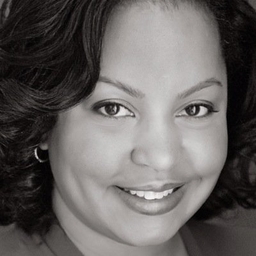
Wendi C. Thomas
Founder, editor and publisher
MLK50
Wendi C. Thomas is a Memphis-based journalist and the founder, editor and publisher of MLK50: Justice Through Journalism, a nonprofit newsroom focused on the issues Martin Luther King, Jr. cared most about: poverty, power and public policy. As a member of ProPublica’s Local Reporting Network, Thomas published an investigation into a Memphis nonprofit hospital that was filing lawsuits against its patients who couldn’t afford to pay medical bills. That story led the hospital to erase the debt of more than 6,500 former patients.
“Wendi is a force of nature,” said Charles Ornstein, deputy managing editor at ProPublica. “Her stories and reporting have changed the lives of thousands of people in Memphis, freeing them from crippling medical debts. She is empathetic, thoughtful, analytical and genuinely strives to understand the intricacies of every story. Her journalism is true to her organization’s name, ‘MLK50: Justice through Journalism’ and to its namesake. Not enough journalists cover the poorest communities among us. We’re so proud to partner with Wendi to do just that.”
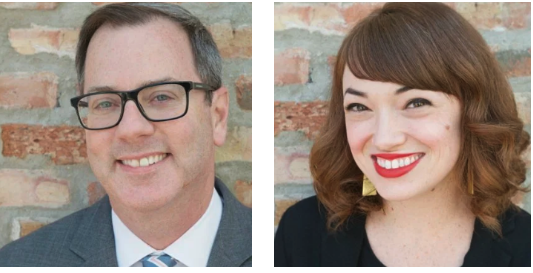
Shamus Toomey & Jen Sabella
Co-founders
Block Club Chicago
Shamus Toomey and Jen Sabella had been helping to run DNAinfo Chicago before it was abruptly shut down by its billionaire owner after a union vote. When they heard how much people missed their local news coverage, they launched Block Club Chicago in 2018. It’s a nonprofit news organization run on Civil’s blockchain platform that’s dedicated to covering Chicago’s different neighborhoods and communities, block by block. Toomey and Sabella both have a long history in journalism: Toomey supervised a team that won the Chicago Sun-Times a Pulitzer in 2011, and Sabella was previously a breaking news reporter at the Chicago Sun-Times and the Chicago editor at HuffPost.
With help from a Kickstarter campaign and a focus on monthly subscriptions, their focus is to build a marketplace for more sustainable local journalism.
And they move fast: Their pivot toward building Block Club Chicago came only a few months after they were laid off, said Stephanie Lulay, another co-founder of Block Club Chicago. “They built DNAinfo Chicago, then were brave enough to start their own neighborhood news site with little funding when Joe Ricketts shut DNAinfo down,” she said. As of August 2019, Block Club Chicago had hit 20 million page views and pulled in 8,000 subscribers.
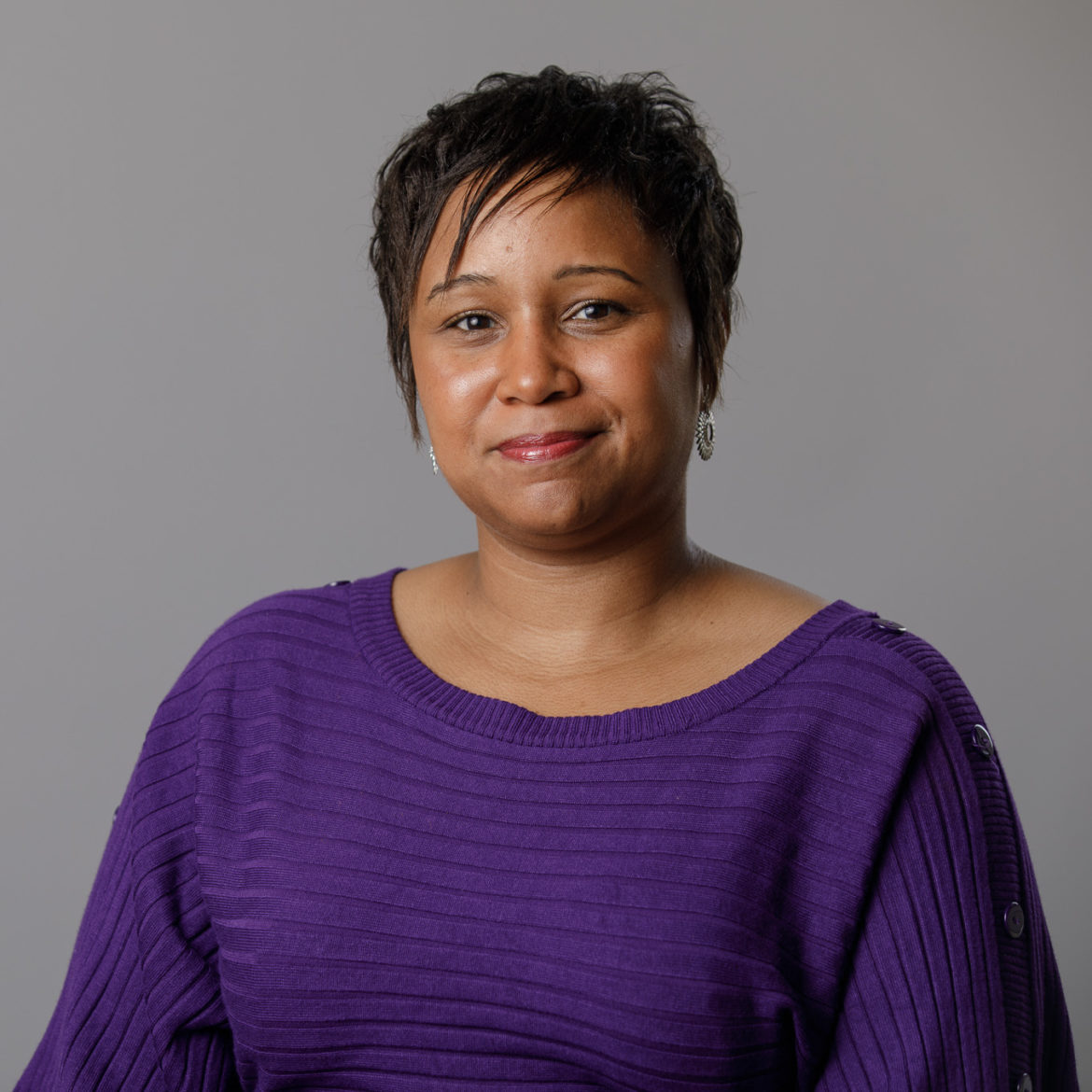
Graham Watson-Ringo
Managing editor
Rivard Report
The former executive producer of expressnews.com, former blog editor at Yahoo! Sports and writer at ESPN.com, Graham Watson-Ringo joined the Rivard Report as managing editor in June 2018. The Rivard Report is a nonprofit, nonpartisan digital news organization based in San Antonio. She had a successful run growing the digital properties of the San Antonio Express-News — including launching multiple podcasts and instituting a social media strategy. And this year, Watson-Ringo is spearheading the Rivard Report’s efforts to help test drive Newspack, a new publishing product from WordPress devoted to addressing the needs of small to medium-sized news publishers. The newsroom was one of 11 chosen from more than 370 publishers that applied.
“Graham is one of those nonprofit news leaders with rock-solid news values, high energy, and an enterprising way of thinking about how to do news in new ways,” said INN’s Sue Cross. “In other words, she’s one of the people who are reinventing news as a public service — representative of a generation of newsroom leaders who are savvy about business and community engagement as well as reporting and editing.”
A special thanks to all the people in the local news ecosystem who suggested ideas for the year-end roundups, especially Mara Jezior at INN, who helped shepherd more ideas my way!
Mark Glaser is executive editor of MediaShift.
YOU MAY ALSO BE INTERESTED IN…
Recent Content
-
Journalismarticle ·
-
Journalismarticle ·
-
Journalismarticle ·





